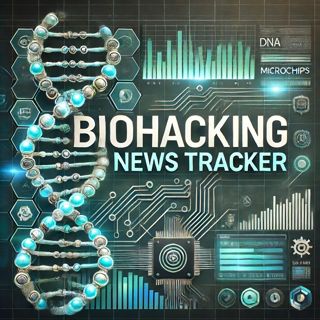
The Booming Biohacking Industry: Revolutionizing Personal Health Through Tech and Innovation
The biohacking industry is experiencing significant growth, driven by increasing consumer interest in personalized healthcare and advancements in wearable technology. Recent market research indicates ...
19 Tammi 20253min

The Biohacking Boom: Transforming Personal Health through Innovation and Technology
The biohacking industry has experienced significant growth in recent years, driven by increasing consumer interest in personalized healthcare, advancements in wearable technology, and rising awareness...
17 Tammi 20253min

Biohacking Boom: Revolutionizing Personal Health and Performance
The biohacking industry is experiencing rapid growth, driven by increasing consumer interest in personalized healthcare solutions and advancements in biotechnology. Recent market movements indicate a ...
15 Tammi 20253min

Biohacking Industry Booms with Personalized Healthcare and Biotech Advancements
The biohacking industry is experiencing rapid growth, driven by increasing consumer interest in personalized healthcare solutions and advancements in biotechnology. Recent market movements indicate a ...
13 Tammi 20254min

The Booming Biohacking Industry Redefining Personalized Wellness
The biohacking industry is experiencing significant growth driven by technological advancements, increasing health awareness, and the desire for personalized solutions. Recent market movements indicat...
12 Tammi 20253min

Biohacking Boom: Unlocking the Future of Personalized Healthcare
The biohacking industry is experiencing rapid growth, driven by increasing consumer interest in personalized healthcare solutions and advancements in biotechnology. Recent market movements indicate a ...
8 Tammi 20253min

The Biohacking Boom: Transforming Wellbeing with Technology, Science, and Human Performance
The biohacking industry has experienced significant growth in recent years, driven by increasing consumer interest in personalized healthcare solutions and rapid advancements in biotechnology. The glo...
6 Tammi 20254min





















